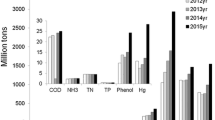Abstract
Managing waste is an increasing problem globally. Microalgae have the potential to help remove contaminants from a range of waste streams and convert them into useful biomass. This article presents a critical review of recent technological developments in the production of chemicals and other materials from microalgae grown using different types of waste. A range of novel approaches are examined for efficiently capturing CO2 in flue gas via photosynthetic microalgal cultivation. Strategies for using microalgae to assimilate nitrogen, organic carbon, phosphorus, and metal ions from wastewater are considered in relation to modes of production. Generally, more economical open cultivation systems such as raceway ponds are better suited for waste conversion than more expensive closed photobioreactor systems, which might have use for higher-value products. The effect of cultivation methods and the properties of the waste streams on the composition the microalgal biomass is discussed relative to its utilization. Possibilities include the production of biodiesel via lipid extraction, biocrude from hydrothermal liquefaction, and bioethanol or biogas from microbial conversion. Microalgal biomass produced from wastes may also find use in higher-value applications including protein feeds or for the production of bioactive compounds such as astaxanthin or omega-3 fatty acids. However, for some waste streams, further consideration of how to manage potential microbial and chemical contaminants is needed for food or health applications. The use of microalgae for waste valorization holds promise. Widespread implementation of the available technologies will likely follow from further improvements to reduce costs, as well as the increasing pressure to effectively manage waste.
Chapter 6 was originally published as Chen, Y., Sun, L., Liu, Z., Martin, G. & Sun, Z. Top Curr Chem (Z) (2017) 375: 89. https://doi.org/10.1007/s41061-017-0175-y.
Access this chapter
Tax calculation will be finalised at checkout
Purchases are for personal use only
Preview
Unable to display preview. Download preview PDF.
Similar content being viewed by others
Author information
Authors and Affiliations
Corresponding author
Editor information
Editors and Affiliations
Rights and permissions
Copyright information
© 2017 Springer International Publishing AG
About this chapter
Cite this chapter
Chen, Y., Sun, Lp., Liu, Zh., Martin, G., Zheng Sun (2017). Integration of Waste Valorization for Sustainable Production of Chemicals and Materials via Algal Cultivation. In: Lin, C. (eds) Chemistry and Chemical Technologies in Waste Valorization. Topics in Current Chemistry Collections. Springer, Cham. https://doi.org/10.1007/978-3-319-90653-9_6
Download citation
DOI: https://doi.org/10.1007/978-3-319-90653-9_6
Received:
Accepted:
Published:
Publisher Name: Springer, Cham
Print ISBN: 978-3-319-90652-2
Online ISBN: 978-3-319-90653-9
eBook Packages: Chemistry and Materials ScienceChemistry and Material Science (R0)




